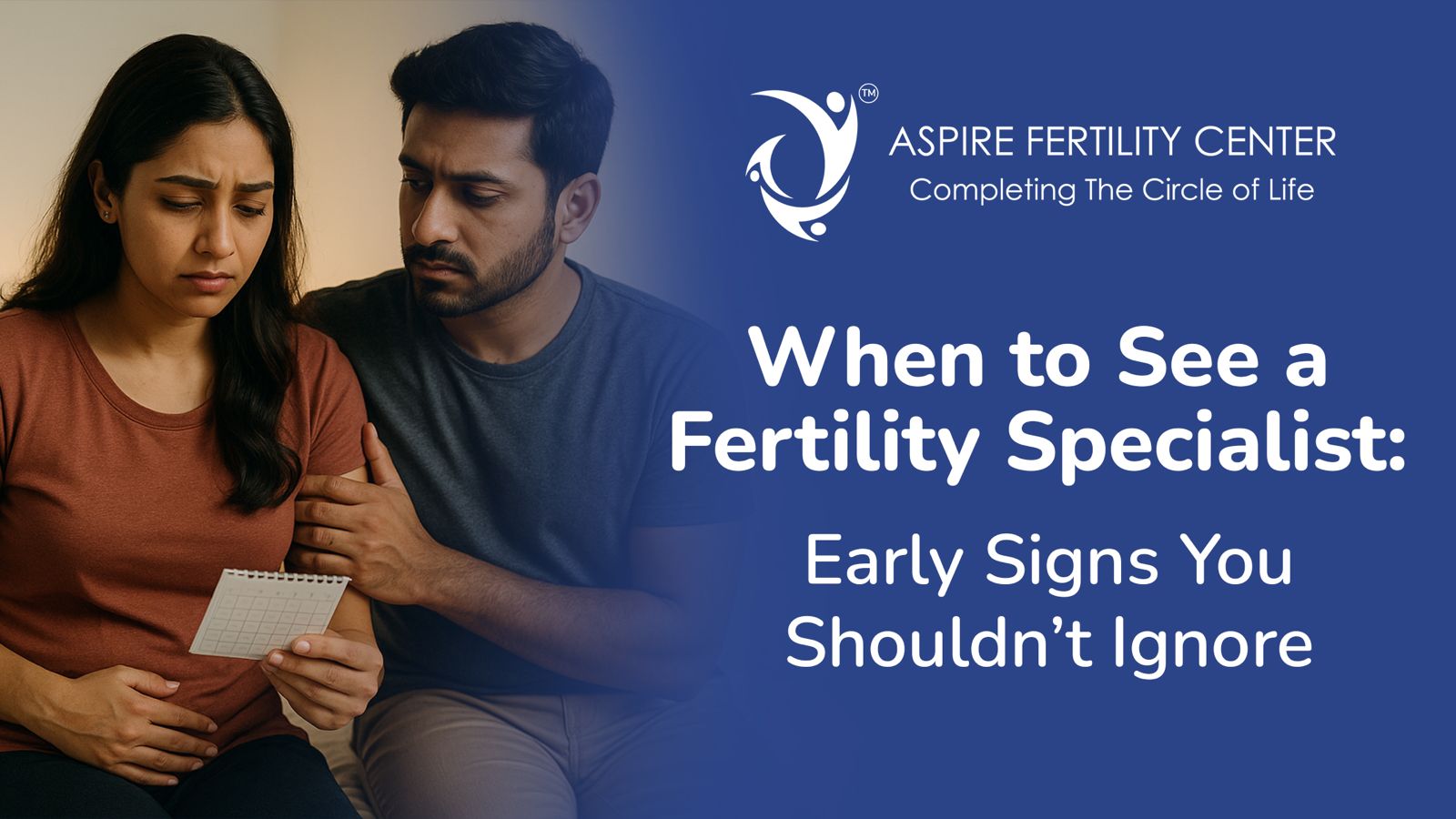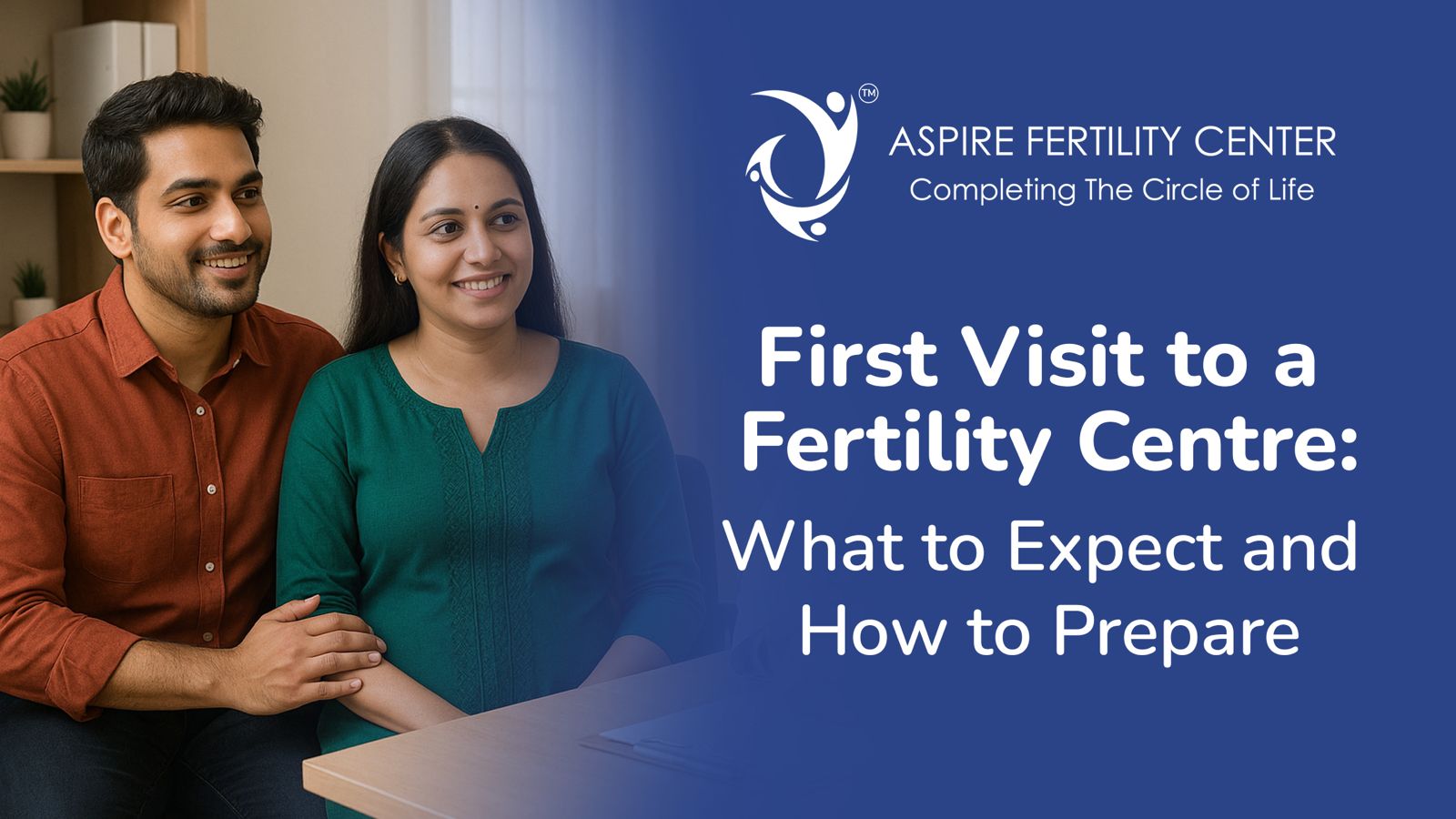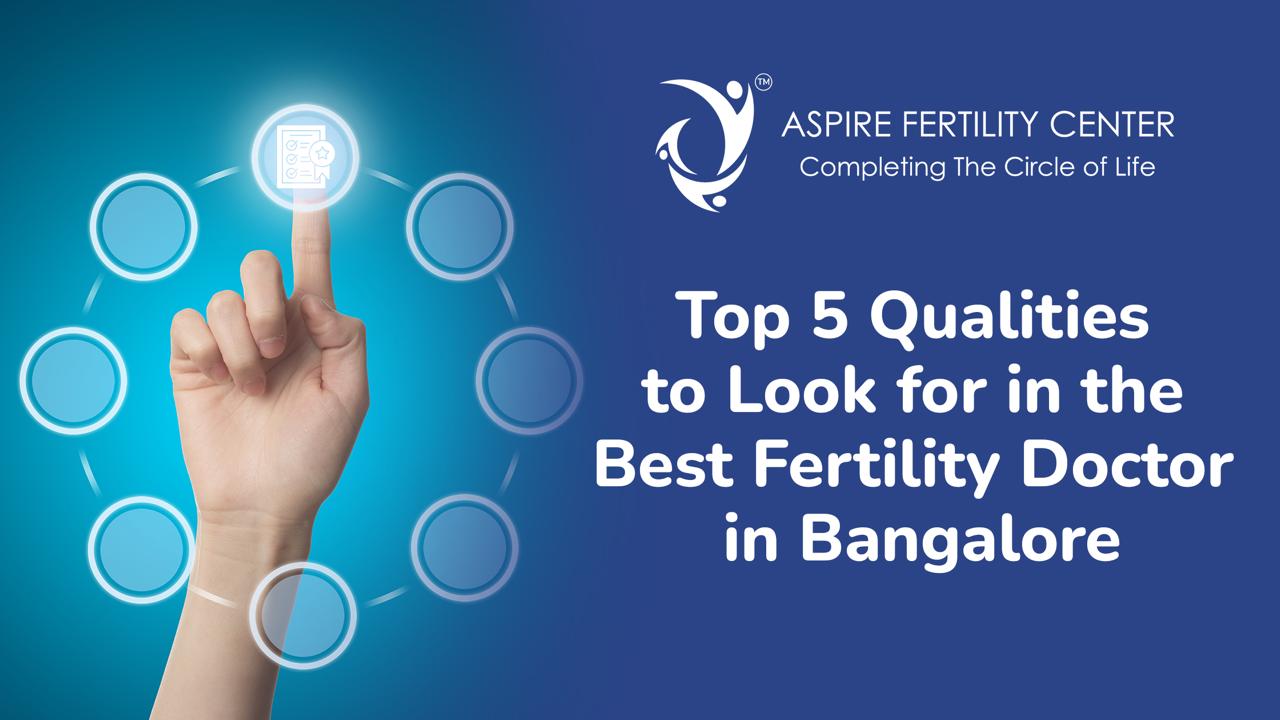HPV Infection – Symptoms, Causes, Prevention & HPV Vaccination
Human Papillomavirus (HPV) infection is a prevalent concern affecting millions of people globally. Understanding HPV, its symptoms, causes, and prevention methods is crucial in combating it. Vaccination is among the most powerful methods for preventing HPV infections. Women, in particular, can benefit from getting vaccinated and taking proactive steps to prevent and detect HPV-related cancers. At Aspire Fertility Center, not only do we take immense pride in being the leading Fertility and IVF clinic in Bangalore, we also aim to be at the forefront of women’s health needs and personalized care when it comes to reproductive health. In this blog, you will find comprehensive information, and support to help you understand and navigate HPV and the HPV Vaccine.
Understanding HPV Infection
HPV infection is caused by the human papillomavirus, which includes over 200 related viruses. While some types of HPV cause benign warts, others can lead to serious health issues such as cervical, vaginal, vulvar, and anal cancers, which disproportionately affect women. There are two categories of Viruses, i.e. High-risk groups such as HPV 16, 18, 31, and 33 which are known to cause cancers, and Low-risk groups such as 6 and 11, which are known to cause warts.
Symptoms of HPV Infection
- Genital Warts: Small, flesh-colored, or gray swellings in the genital area.
- Common Warts: Rough, raised bumps on hands, fingers, or elbows.
- Plantar Warts: Firm, rough nodules that develop on the soles of the feet.
- Flat Warts: Flat-topped, slightly raised lesions.
Causes of HPV Infection
- Multiple sexual partners
- Weakened immune system
- Damaged skin
- Direct contact with warts or surfaces carrying the virus
Diagnosis and Testing
- Pap Test (Pap Smear): Screening for cervical changes.
- HPV Test: Specifically detects the presence of the virus in the cervix.
HPV and Fertility
HPV infection can certainly impact a woman’s fertility, particularly if it leads to complications such as cervical cancer. It is crucial for anyone diagnosed with HPV to seek immediate medical advice either with their gynecologist, or a Fertility Specialist who can help them manage the infection effectively, and plan for their fertility.
HPV Vaccination
- The HPV vaccine is recommended as a routine vaccination for preteens (both boys and girls) at age 11 or 12 but can be given as early as age 9 and up to age 26 for those who were not vaccinated earlier. If you are looking for ‘HPV Vaccine near me in Bangalore’, Aspire Fertility Center offers a comfortable environment under the guidance of our expert Gynaecologist Team to get the HPV Vaccination.
- HPV vaccination is recommended for individuals through age 26 if they have not been vaccinated when they were younger.
- For adults between 27-45 years of age it is recommended to discuss with their doctor on whether they are likely to benefit from getting the vaccination if they were not vaccinated before 27 years of age.
- In adolescents vaccinated before their 15th birthday, the HPV vaccine is recommended in 2 doses. The second dose should ideally be administered 6-12 months after the first dose. In the case of those who receive two doses less than 5 months apart a 3rd dose is required
- For Pre-teens and young adults ranging from 15-26 years of age, 3 doses of the vaccine are recommended, in a 0, 1-2 months, and 6 months schedule.
- Practicing safe sex with dental dams and prophylactics (Protective barriers) can significantly lower the risk of HPV transmission. By using protective barriers, individuals can reduce the risk of skin-to-skin contact, which is a common way HPV is spread.
- Regular screenings and Pap tests for women to detect any changes in the cervix.
Cervical Cancer Prevention
- Vaccination: The HPV vaccine is highly effective in preventing the types of HPV that cause most cervical cancers.
- Screening: Regular Pap tests and HPV tests can detect precancerous changes in the cervix early, allowing for timely treatment.
Age and Preventive Screening for Cervical Cancer
Preventive screening for cervical cancer is recommended starting at age 21. Women should continue regular screenings as advised by their healthcare provider. The HPV vaccine is most effective when administered to preteens, but it can also benefit individuals up to age 26.
Treatment Options for HPV Symptoms
While there is no cure for HPV, treatments are available to manage symptoms and reduce the risk of complications.
Complications of Untreated HPV
- Cervical, anal, or oropharyngeal cancers.
- Persistent genital warts.
Myths and Facts about HPV
- Only women need to worry about HPV.
- HPV always causes symptoms.
- Both men and women are at risk for HPV and related complications.
- Many people with HPV do not show symptoms but can still transmit the virus.
Living with HPV
- Connect and speak to your trusted healthcare expert and join support networks to access guidance and resources.
- Stay up-to-date with the latest advancements in treatment options and preventive care.
Role of Aspire Fertility Center HPV Vaccine Service
HPV Awareness and Education
- Reduces stigma associated with HPV.
- Encourages vaccination and regular screenings.
FAQs (Frequently Asked Questions)
Q1: What is HPV?
A: HPV stands for human papillomavirus, a group of over 200 related viruses, some of which can cause warts or lead to cancer.
Q2: How common is HPV?
A: HPV is one of the most common sexually transmitted infections, with most sexually active people contracting it at some point in their lives.
Q3: Can HPV be cured?
A: There is no cure for HPV, but its symptoms can be managed, and complications can be prevented with proper medical care.
Q4: Is HPV preventable?
A: Yes, HPV is preventable through vaccination, safe sexual practices, and regular screenings.
Q5: How does HPV affect pregnancy?
A: HPV can complicate pregnancy, particularly if it leads to cervical changes or cancer. It is essential to manage HPV effectively with the help of a healthcare provider, a trusted gynecologist, or a fertility specialist.
Conclusion
HPV infection is a significant health concern, but with proper knowledge, prevention, and treatment, its impact can be managed. Aspire Fertility Center is here to support you with our expert Doctors and Fertility specialists and compassionate care, combined with best-in-class reproductive technologies, helping you achieve your dream of parenthood despite the challenges posed by HPV.





